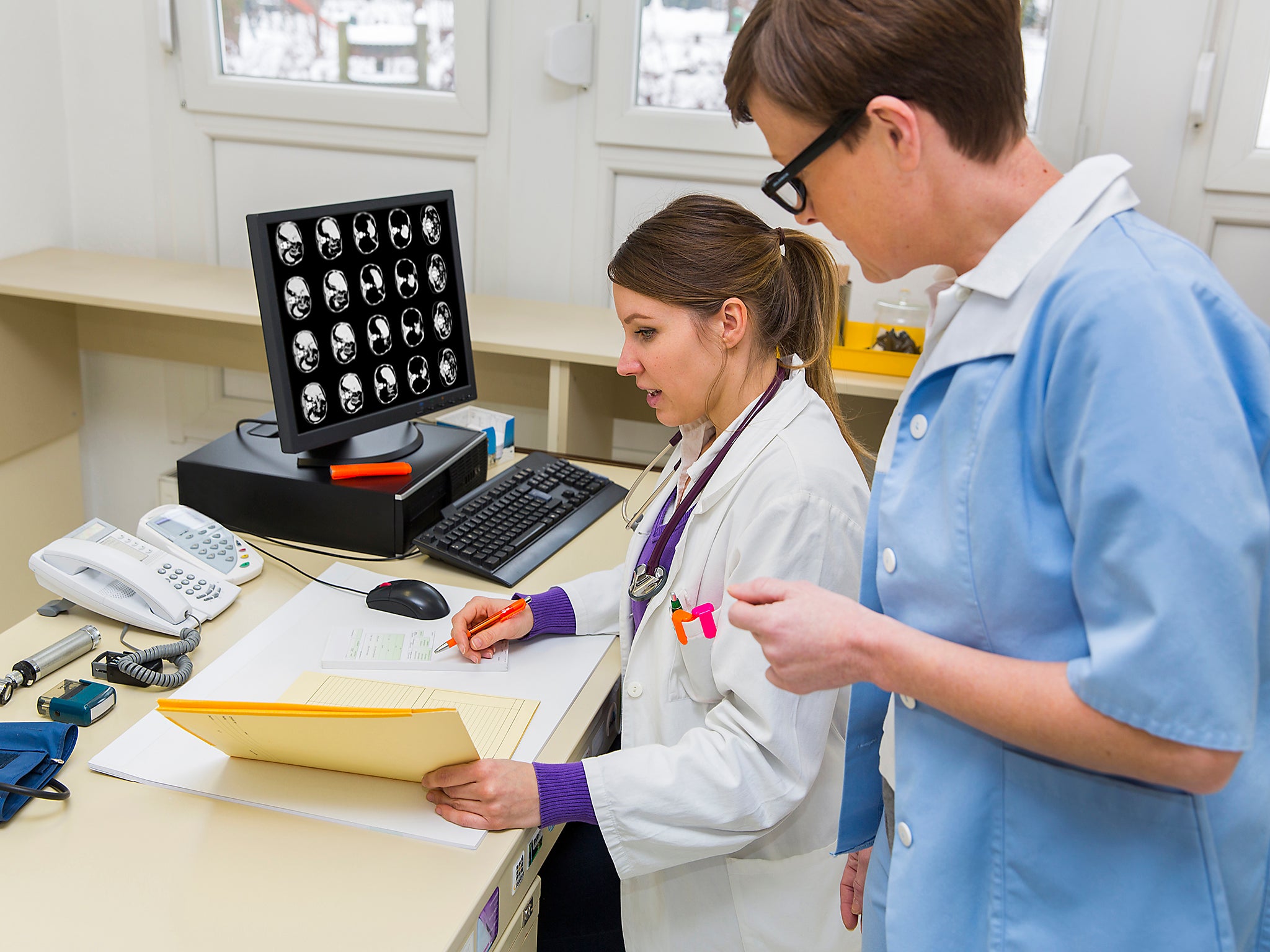GPs to be given £20,000 golden handshake for starting in rural areas
Health Secretary Jeremy Hunt introducing measures to support struggling doctors

Your support helps us to tell the story
From reproductive rights to climate change to Big Tech, The Independent is on the ground when the story is developing. Whether it's investigating the financials of Elon Musk's pro-Trump PAC or producing our latest documentary, 'The A Word', which shines a light on the American women fighting for reproductive rights, we know how important it is to parse out the facts from the messaging.
At such a critical moment in US history, we need reporters on the ground. Your donation allows us to keep sending journalists to speak to both sides of the story.
The Independent is trusted by Americans across the entire political spectrum. And unlike many other quality news outlets, we choose not to lock Americans out of our reporting and analysis with paywalls. We believe quality journalism should be available to everyone, paid for by those who can afford it.
Your support makes all the difference.GPs in training will receive a "golden hello" of £20,000 if they start their careers in the countryside or on the coast in a bid to boost the number of family doctors in areas with difficulty recruiting.
Health Secretary Jeremy Hunt is to introduce a package of measures to help the struggling GP workforce.
This includes a one-off payment to try to entice 200 GPs who are beginning their careers to work in areas struggling to secure family doctors - such as rural practices and those by the seaside.
From 2018, surgeries in hard to recruit to areas will benefit from the new £4 million scheme.
Addressing the Royal College of GPs annual conference in Liverpool, Mr Hunt will also announce plans for flexible working for older GPs to encourage them to stay in the workforce for longer before retiring.
Meanwhile, he will confirm plans for an overseas recruitment office which will try to lure GPs from countries outside Europe - particularly Australia - to come and work in England.
The Department of Health has also launched a consultation on the regulation of physician associates (PAs) to provide further clarity on the scope of the role.
It is hoped that these PAs - usually science graduates who have undergone two years of intensive training - can help support healthcare teams across the country.
But concerns have previously been raised over plans to use more PAs to perform medical duties including examining patients, diagnosing illnesses and analysing test results.
Leading medics have warned the new posts should not be used as a way of replacing doctors.
In his speech to delegates, Mr Hunt will also try to address one of the main concerns facing the GP workforce - the rising costs of indemnity.
Mr Hunt will signal plans for a new state-backed scheme for clinical negligence indemnity for general practice in England.
It is hoped that this would create a long-term solution to the increasing fees which are forcing doctors out of the profession, with the average medic now shelling out around £8,000 a year for clinical negligence indemnity cover.
The Government will work with medical defence organisations, the Royal College of GPs and the British Medical Association to come up with the “best way forward”, a Department of Health spokeswoman said.
“Last month, the Care Quality Commission gave a glowing verdict on the state of general practice in England, but this should not distract us from the fact that the profession is under considerable pressure at the moment,” Mr Hunt said.
“By introducing targeted support for vulnerable areas and tackling head-on critical issues such as higher indemnity fees and the recruitment and retention of more doctors, we can strengthen and secure general practice for the future.
“Our talented GP workforce is one of the reasons why we have the best healthcare system in the world, and our commitment of an additional £2.4 billion a year for primary care by 2021 will ensure this continues.”
Professor Wendy Reid, director of education and quality at Health Education England, added: “We spend nearly £500 million a year on GP training. We are working closely with NHS England to provide 5,000 more doctors in general practice by 2020.
“More doctors than ever before are entering general practice and this is illustrated by the GP training fill rate figures for 2016 which, at 3,019, is the highest number ever.”
PA
Join our commenting forum
Join thought-provoking conversations, follow other Independent readers and see their replies
Comments